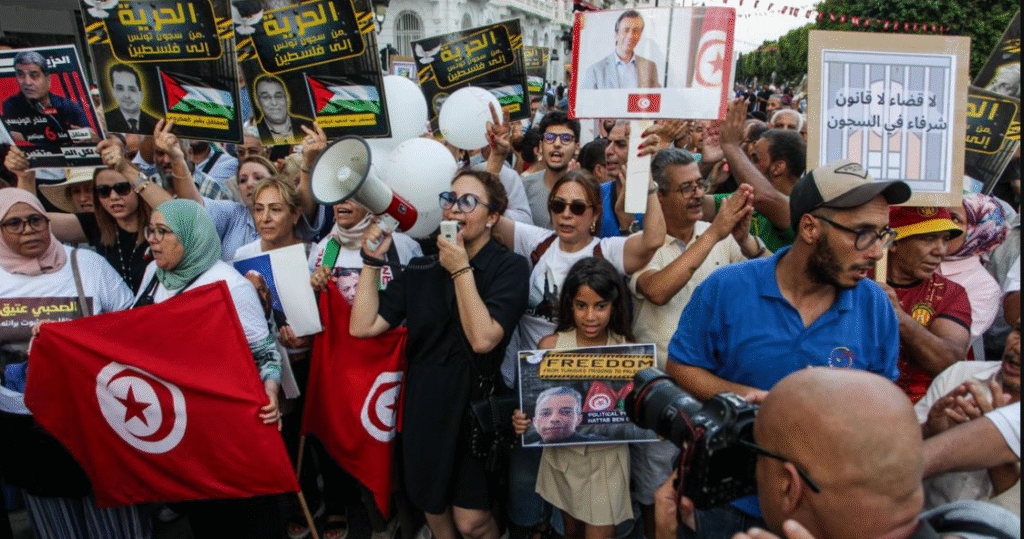Hundreds of Tunisians marched through the capital Tunis on July 25, 2025, marking the four-year anniversary of President Kais Saied’s takeover. Protesters chanted “The people want the fall of the regime” and “The Republic is a large prison”, voicing deep frustration over years of political repression, mass arrests, and shrinking freedoms.
Why July 25 Protests Mark a Turning Point in Tunisia’s Democratic Backslide
On July 25, 2021, President Saied suspended the elected parliament, dismissed the prime minister, and started ruling by decree. He said these steps were necessary to fix political instability and corruption. But many Tunisians and international observers saw this move as a power grab. Over the next few years, Saied introduced a new constitution giving himself even more control.

He also reshaped the judiciary, fired dozens of judges, and passed laws limiting freedom of speech. Political opponents, journalists, lawyers, and activists have been arrested, many without fair trials. As a result, July 25 has become a day of protest, not celebration, for those who feel Tunisia has lost its democratic future.
Tunisians Demand Freedom, Justice, and the Release of Political Prisoners
The protesters on July 25 included people from different political backgrounds. They all shared the same demand: restore democracy and free political prisoners. Some of the most well-known detainees include Rached Ghannouchi, leader of the Ennahda party, and other opposition figures such as Abir Moussi and Sonia Dahmani.
Human rights groups say many arrests were based on vague charges . The controversial Decree 54, passed in 2022, criminalizes speech that the government claims is harmful to national security. Critics argue this law is being used to silence anyone who disagrees with the president.
Can Tunisia Reclaim the Promise of the Arab Spring?
In 2011, Tunisia led the Arab Spring, becoming the first country in the region to remove a long-standing dictator through peaceful protests. It then moved toward democracy, holding free elections and writing a new constitution. Tunisia was often praised as the only real success story of the Arab Spring.

But now, many believe the country is going backward. President Saied’s critics say he has destroyed the progress made since 2011. Still, the July 25 protests show that many Tunisians have not given up hope. They are demanding a return to fair elections, an independent judiciary, and freedom of speech.
July 25 protests show that Tunisians are not ready to accept authoritarian rule. People from all walks of life are raising their voices for justice, democracy, and human dignity. As Tunisia faces both political repression and economic hardship, the future depends on how the government responds.

